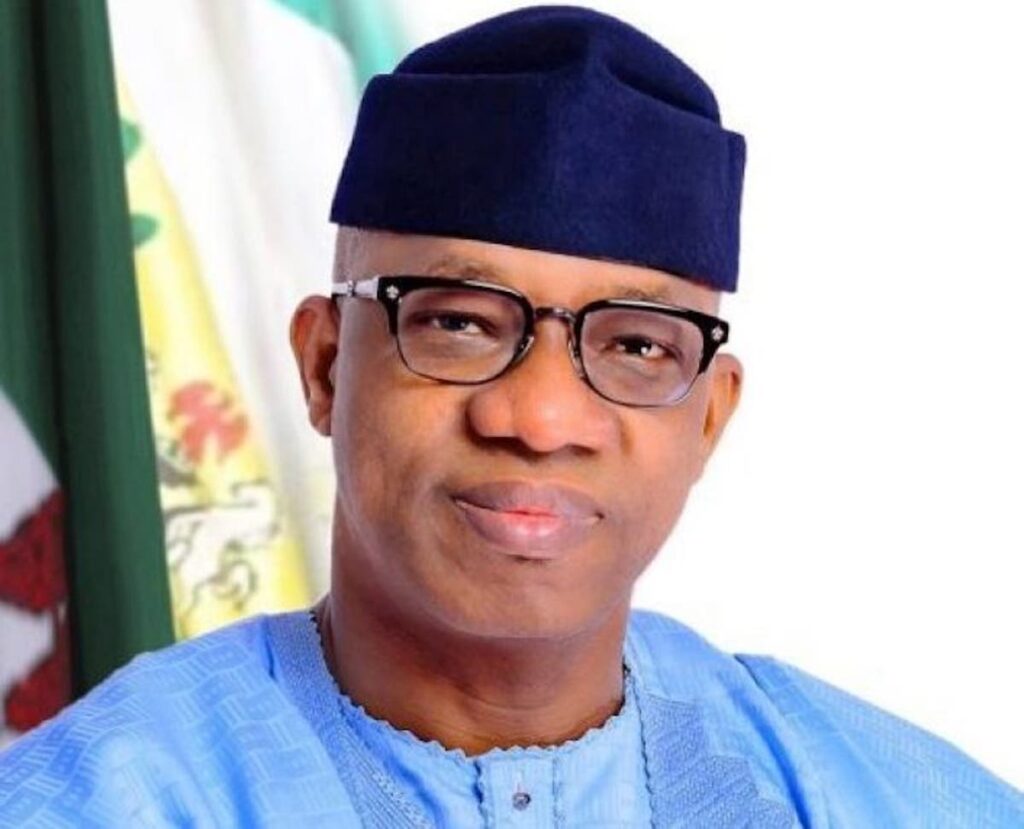By Seye Abodunrin
One of the greatest challenges facing Nigeria since independence is shortage of infrastructural development, especially the issue of deplorable road network. Many of those roads and bridges that were built by the colonial administration and military regime are still in use in some communities around Nigeria.
Expectedly, those roads had seriously deteriorated and became death traps around the country even with several palliatives carried out on them by successive civilian administrations; they remain impassable and terrible, making road users to go through hell on a daily basis.
Unfortunately, the military junta did not do much to develop road infrastructure in Nigeria, mostly in the subnationals, where military administrators ruled with utmost impunity and enmeshed in large scale corruption and maladministration.
Ogun State is one of those States that have suffered such infrastructural menace since its creation in 1976, as successive military administration’s in the State were very indifferent to road construction and rehabilitation. Meanwhile, considering the proximity of the State to Lagos State, the commercial capital of Nigeria, Ogun became the safe haven for millions of people who work in Lagos; as majority of them could not afford the outrageous rent in Lagos.
As a result of this, there was influx of hitherto Lagos residents into Ogun, as they settled at the border areas without government’s approval and against extant building regulation and laws, thereby overstretching available infrastructural facilities in those areas.
Regrettably, successive administrations in the State for almost two decades, between 1999 and 2019 did not pay any tangible attention to road construction and rehabilitation in any part of the State, not to talk of border communities. The outright neglect of these areas for good 20 years worsened the conditions of the areas beyond imagination
While Aremo Olusegun Osoba’s administration that lasted for just a term of four years could put up an alibi of insufficient time to make provision for those areas in its infrastructural development plan, Gbenga Daniel and Ibikunle Amosun completely neglected those areas with high level of insensitivity for 16 years altogether.
In the case of Daniel, the act of deception that characterised his administration did not create room for any consideration for the border communities, he was notorious for empty promises without action.
Amosun on his part held the State at its jugular and remained strictly sectional and lopsided in his development plan. He concentrated majority of his projects in his senatorial district of Ogun Central, coupled with many unnecessary construction he embarked upon, like those bridges he constructed with billions of naira without necessity.
At the inception of Dapo Abiodun-led administration in 2019, one of those areas he identified as top priority is road infrastructure as he embarked on massive road construction and rehabilitation across the State, unlike his predecessors. Amidst limited resources, Abiodun rationalised the available resources to solve the enormous road infrastructural deficit confronting the State and consistently moved to address it holistically.
To the chagrin of many, Governor Dapo Abiodun has built over 600km of roads across the three senatorial districts, making it far beyond all what his predecessors had built altogether, including many around the corridor of the border communities.
However, because the inherited deficit is much, which according to stakeholders in the Built Sector would gulp up hundreds of billions of naira to get it fixed completely, the only option left is to be patient.
Also, of particular interest is the frantic efforts made by the Governor to take over some Federal roads of profound necessity and urgency and the level of disappointment he had suffered in the course of soliciting for the Federal Government’s nod.
Obviously, Governor Dapo Abiodun has really tried to improve road infrastructure in the Gateway State even in the face of multifaceted constraints; he needs to be appreciated and supported.
That is why I was so sad when I first read the trending story on X and the resultant negative comments it gathered. While there is nothing wrong in demanding good governance, however, the popular dictum says: “whoever wants equity must come with a clean hand.”
It is incontrovertible correct to say that many of those criticising the Governor neither live in the State nor work there. As a matter of fact, the majority of them don’t even have any knowledge about the history of the State but because they have access to data, they became emergency activists.
I don’t envy Governor Dapo Abiodun at all, because, despite his impressive and massive investments in road construction, our people, especially the youths, looked the other way without recourse to conscience.
Lastly, I want to say categorically clear that Governor Dapo Abiodun is now taking bullets for the insensitivity and ineptitude of his predecessors, but because the Governor is a perfect gentleman with necessary political maturity and tolerance, he has come out to promise residents of the State more construction and rehabilitation across the State.
Kudos Your Excellency for this exemplary trait of stewardship and humility, despite carrying the burden of inherited infrastructural deficit.
Seye Abodunrin writes from Ijoko.

